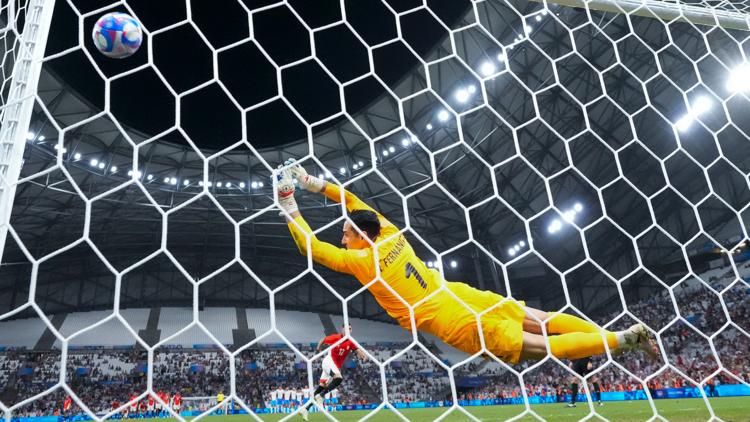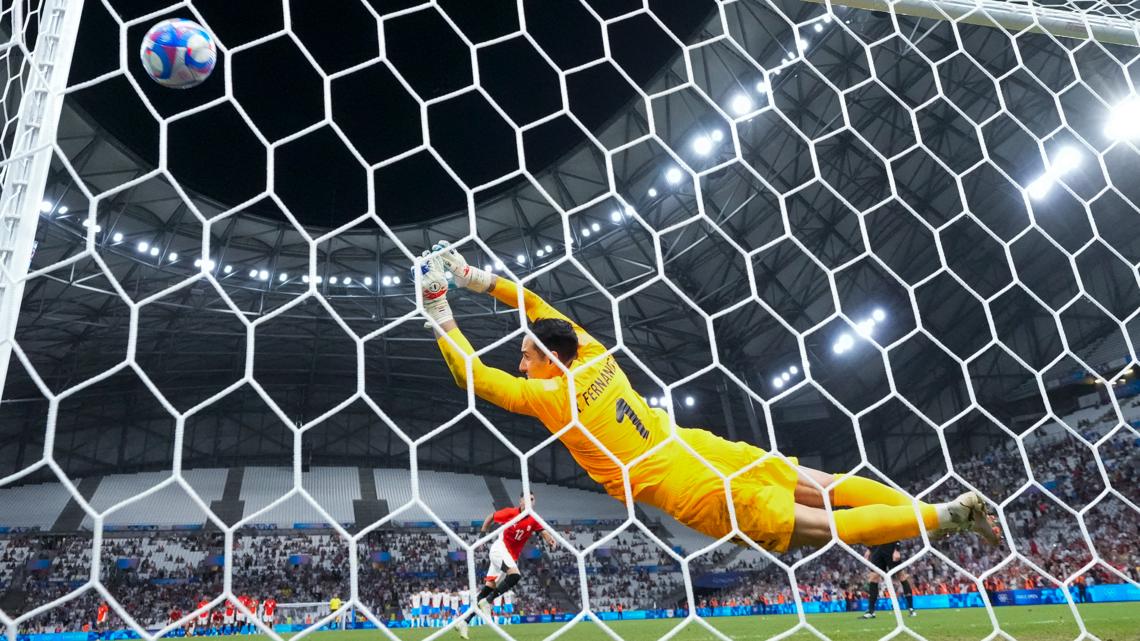Once the knockout rounds begin matches can't end in a tie. Here's how a winner is decided if things are tied up.


PARIS, France — While the group stage matches for Olympic soccer could end in a tie, that goes out the window during the later rounds of the tournament.
If no one scores during the knockout rounds, the match can eventually be decided by a shootout. But first there's 30-minutes added on to see if a winner can happen before then.
There were already two penalty shootouts in the women's quarterfinal and one in the men's side of the tournament.
How long is a soccer game?
Matches are made up of two 45-minute halves. If no one has scored after 90 minutes (plus stoppage time), extra time comes into play.
Olympic soccer overtime rules
Extra time, which is essentially overtime in soccer, consists of two 15-minute halves, and teams play both full halves even if one team scores -- there is no "Golden Goal" or "sudden death" rule. After the first 15-minute half, there's a brief break and the teams change ends.
If teams are still tied at the end of extra time, teams face off with five rounds of penalty kicks. Whichever team makes the most penalty kicks out of five wins.
If there is no leader, the game ends with a sudden-death penalty shootout.


Penalty shootouts at Paris Olympics
- Canada women’s soccer team lost a penalty shootout (4-2) to Germany in the quarterfinals
- World champion Spain fought back from 2-0 down and advanced to the semifinals of the Olympic women’s soccer tournament by beating Colombia in a penalty shootout (4-2)
- Goalkeeper Hamza Alaa saved a penalty by Marcelo Perez and Egypt defeated Paraguay 5-4 in a shootout to reach the semifinals of the men's soccer tournament at the Paris Olympics on Friday.
.png)









 English (US) ·
English (US) ·